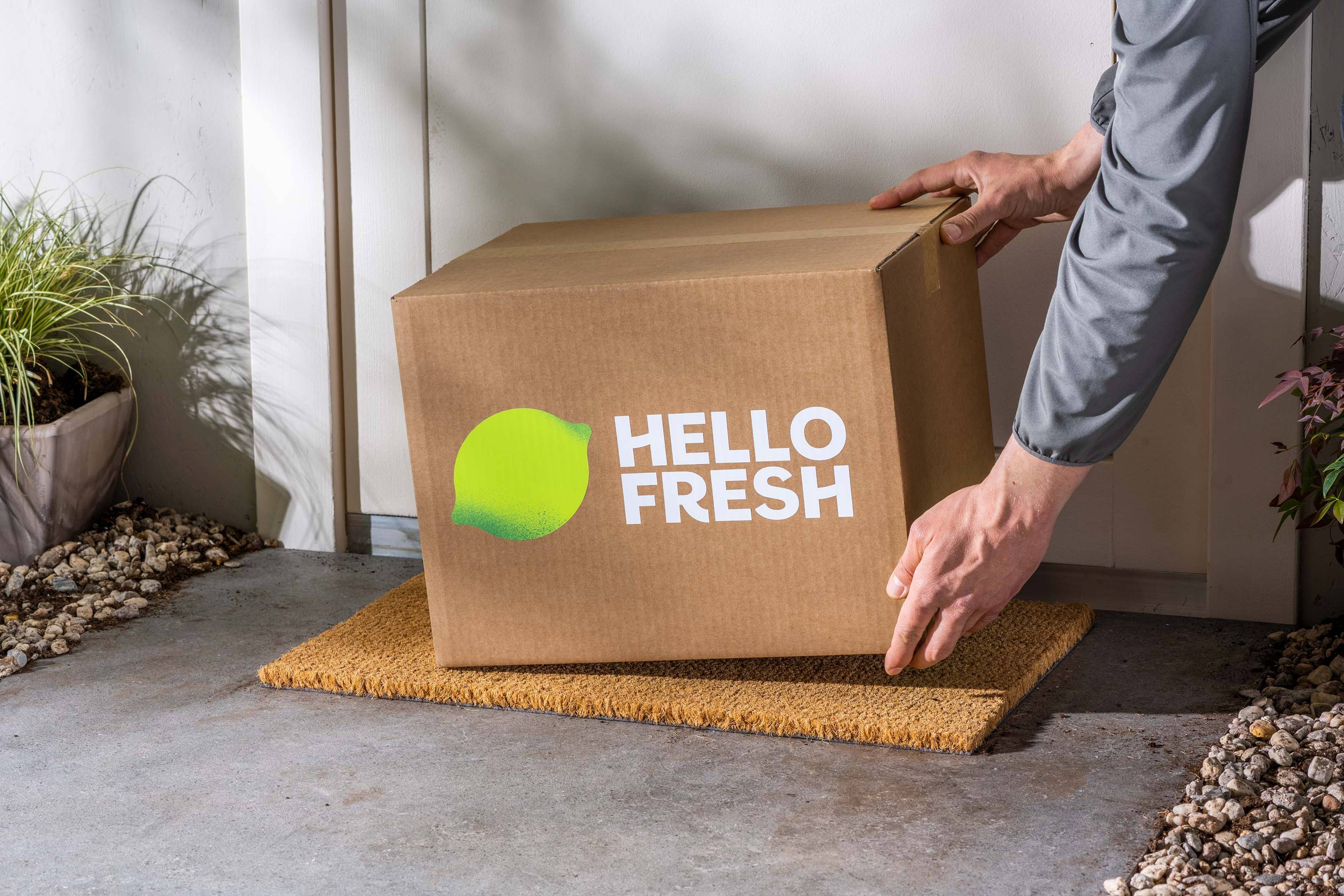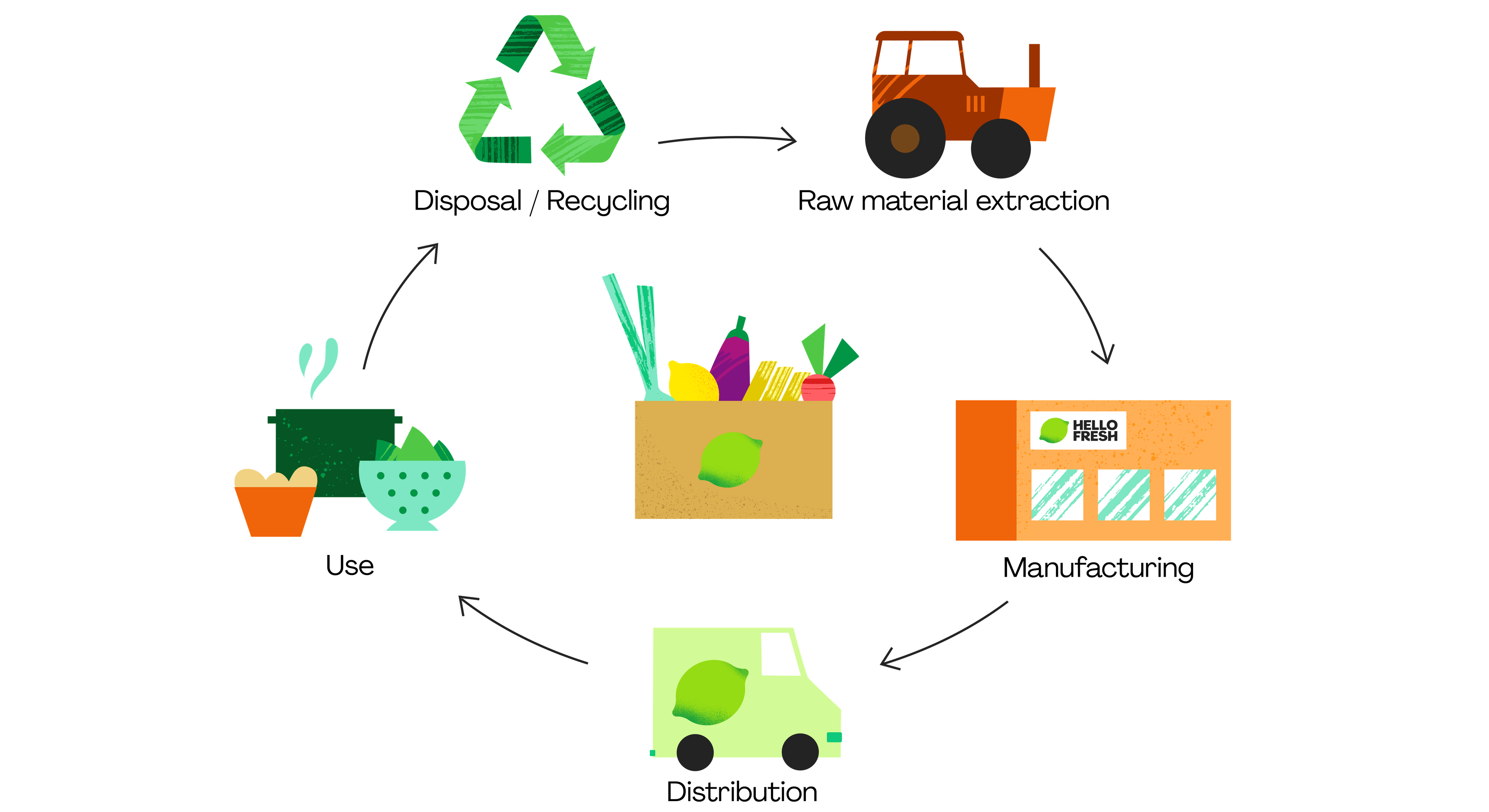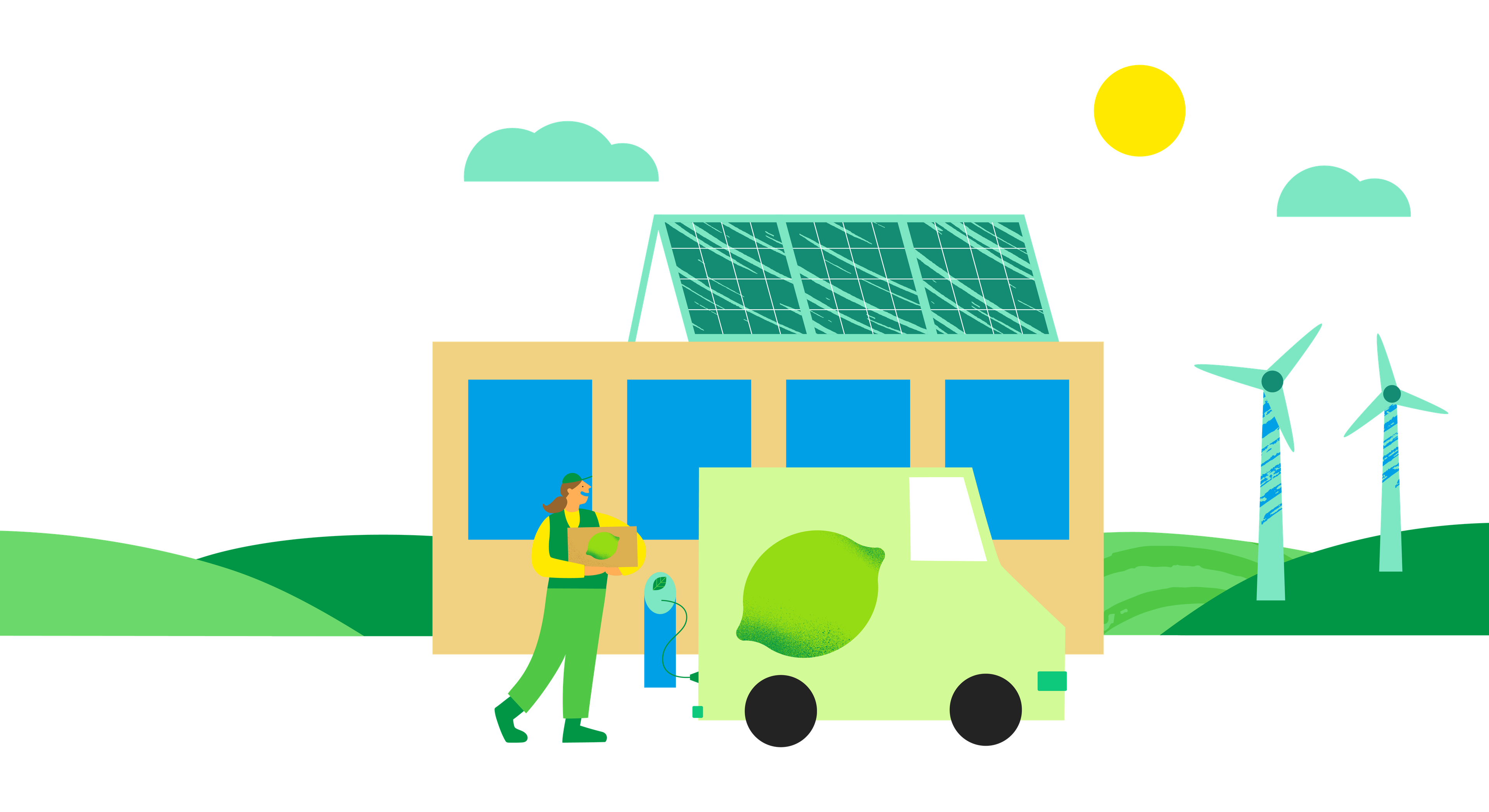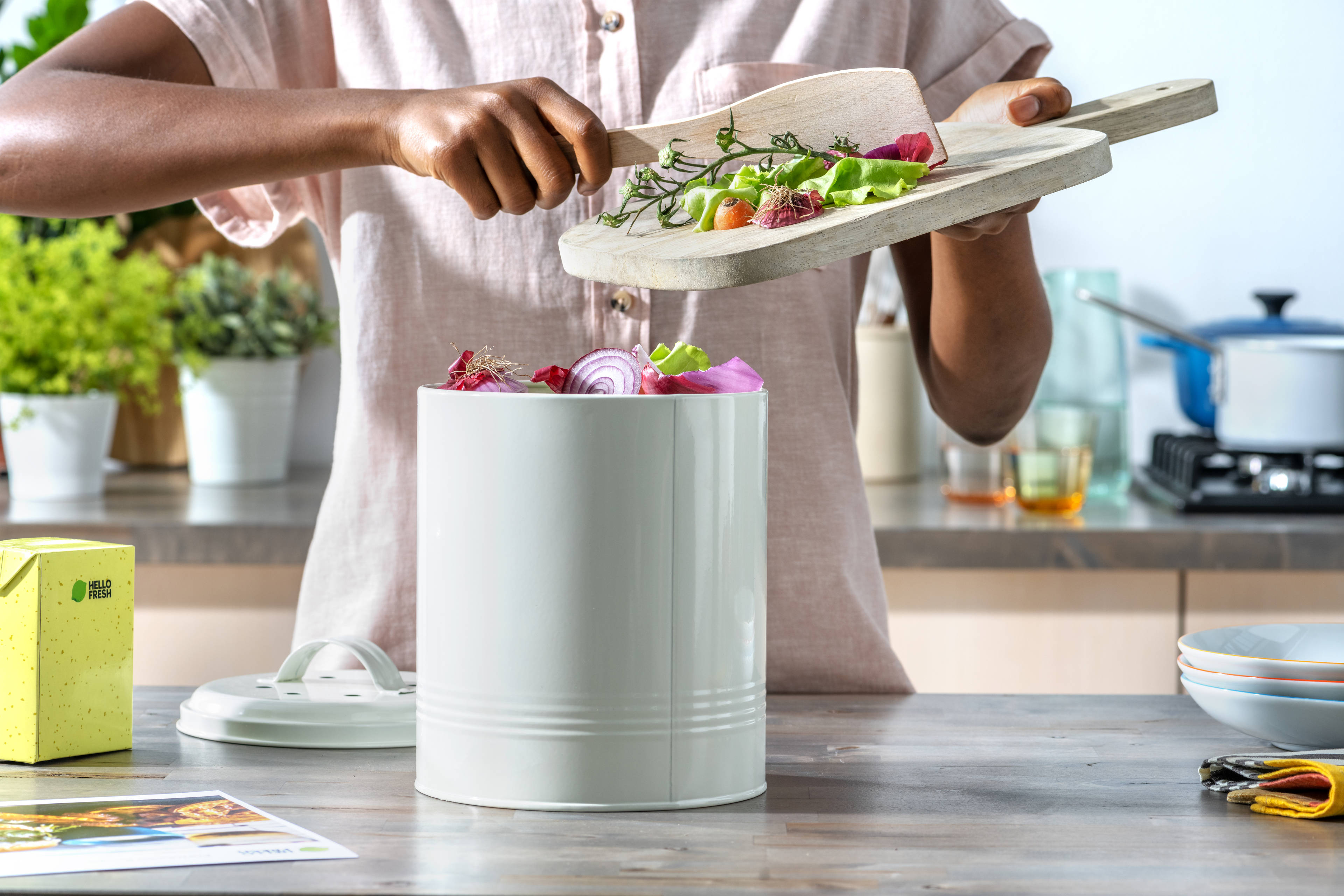With HelloFresh, it’s easy to reduce carbon emissions at mealtimes.
Thanks to our short supply chain, ingredients make fewer stops between the supplier and you. Food gets to you faster and stays fresh for longer, producing fewer carbon emissions and less food waste*.

Continuously improving the supply chain

The study found that cooking with HelloFresh creates 25%** fewer carbon emissions than the same meals made from supermarket ingredients.

Serving up meals with fewer emissions

Powering up energy efficiencies
Want to know more about sustainability at HelloFresh?
We waste 21% less food waste than traditional food retailers by only sending you ingredients based on your order, pre-portioned to the gram. Learn more about Food Waste. * Your HelloFresh meals create 25% fewer carbon emissions than the same meals made from supermarket ingredients. On a global average; national levels differ. Learn more about the LCA study.

